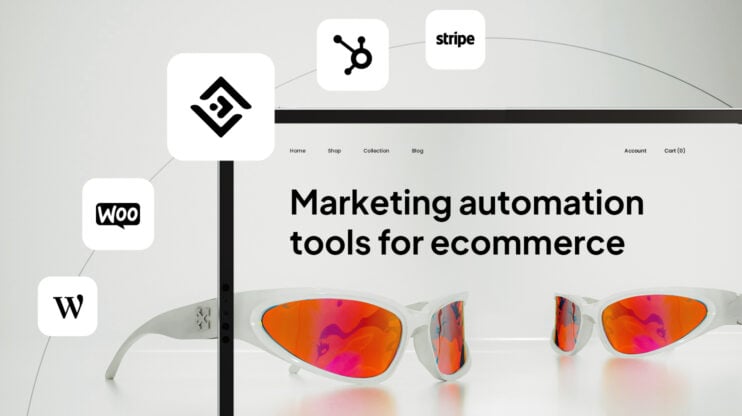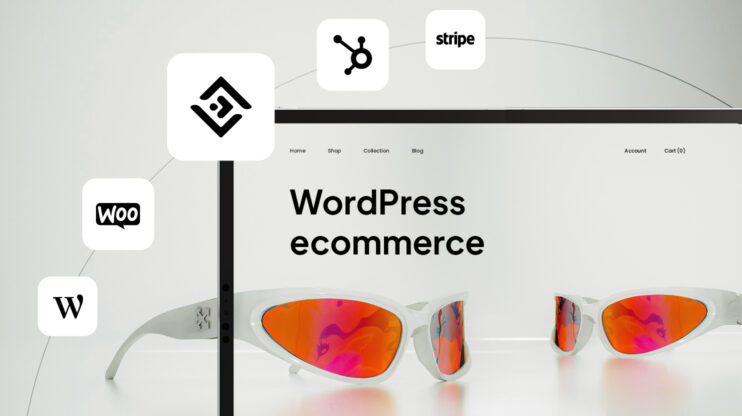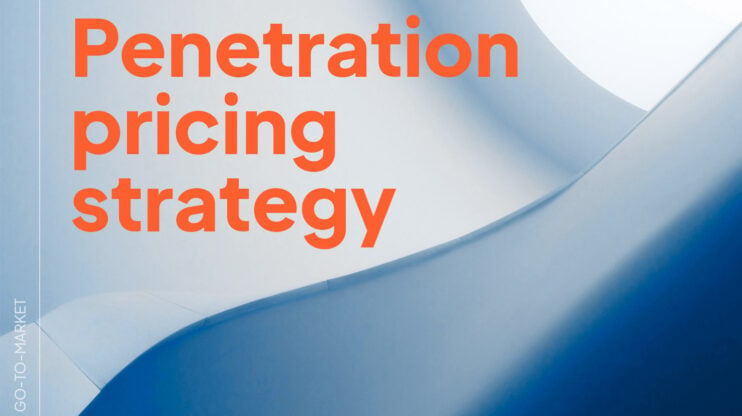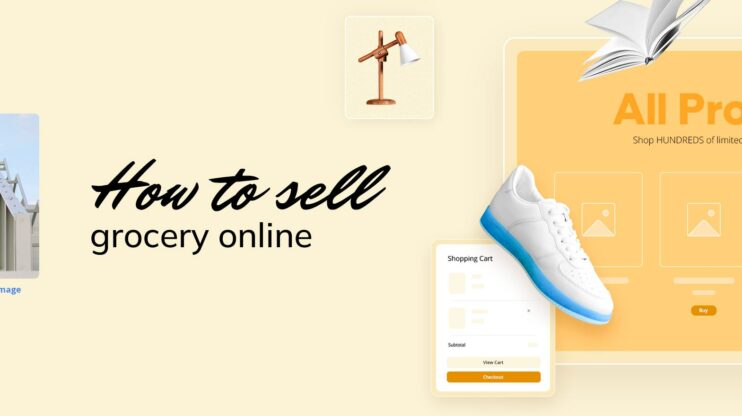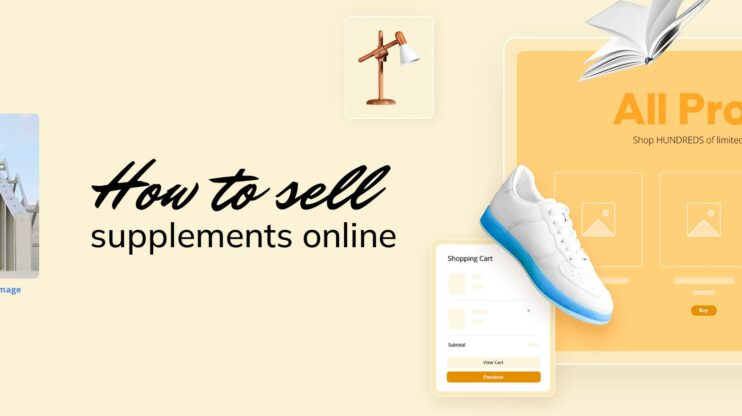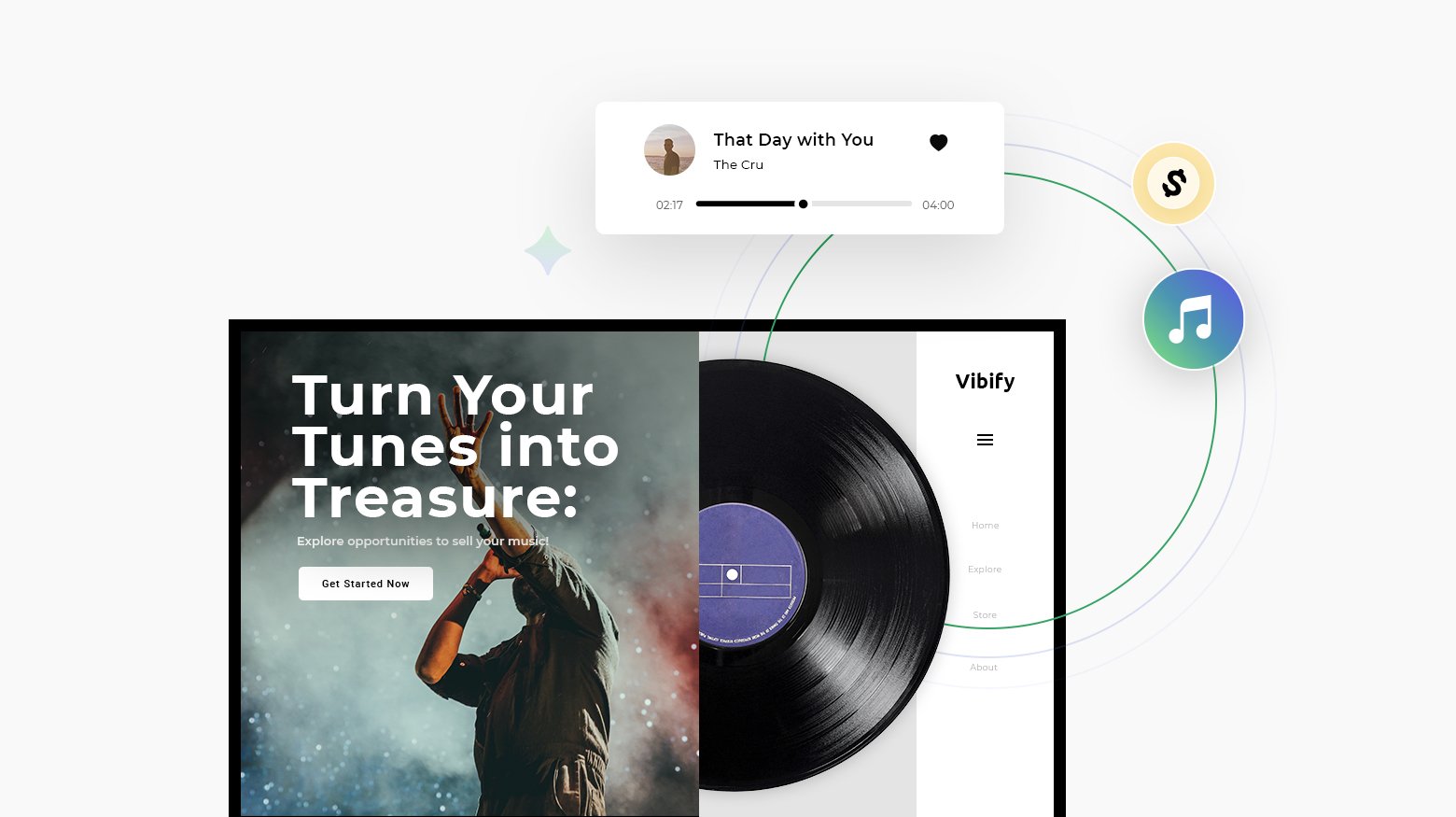Private label dropshipping is an ecommerce fulfillment model where a merchant sells custom-branded products manufactured by a third party who ships directly to the end consumer. Unlike generic dropshipping, this model allows you to customize packaging and labels, enabling higher profit margins and stronger brand equity without the burden of inventory management. By owning the brand identity while outsourcing the manufacturing, entrepreneurs can scale quickly and effectively eliminate direct price competition.
The power of this model is its scalability. While I once spent months hand-sourcing and blending artisanal tea, a friend launched a professional, custom-branded tea line in just weeks by leveraging a private label supplier to handle the fulfillment. To help you replicate that speed, I’ve vetted the 10 best private label dropshipping suppliers for 2026 based on their customization depth, shipping reliability, and integration ease.

Create your online store in minutes!
Looking to sell online? Develop and launch your store with 10Web AI Ecommerce Website Builder.
Private label vs. white label vs. dropshipping
These three terms get tossed around a lot, but they’re not the same thing. Here’s how they’re different:
- Dropshipping is the basic model where you sell products online without keeping any inventory. When someone buys from your store, the supplier ships the product directly to the customer. The products are usually generic, and you have little control over how they look.
- White label products are generic products made by a manufacturer that multiple sellers can brand as their own. For example, several stores might sell the same skincare cream, but each one puts its own logo on the packaging. You can’t change the product itself, just the branding.
- Private label gives you more control. You work with suppliers to create products that are made just for your brand. You can customize the packaging, labels, and even tweak the product itself. This lets you stand out from other sellers and build a unique brand.
Here’s a simple table to highlight the key differences:
| Feature | Dropshipping | White label | Private label |
| Product ownership | Generic products from suppliers | Generic products with your branding | Custom products made specifically for your brand |
| Branding control | Little to no control over branding | Can add your logo and packaging | Full control over branding, packaging, and product design |
| Product customization | No customization | No product changes, only branding | Can modify the product, packaging, and design |
| Competition | High, many sellers offer the same products | Moderate, multiple sellers offer similar branded items | Low, products are unique to your brand |
| Startup costs | Low, no inventory or branding costs | Slightly higher due to branding and packaging | Higher, due to product development and custom packaging |
| Profit margins | Lower, due to high competition | Moderate, better branding can increase prices | Higher, unique products allow premium pricing |
| Best for | Beginners wanting a simple setup | Sellers looking to build brand recognition quickly | Entrepreneurs focused on building a unique brand |
In short: Dropshipping is the simplest, white label lets you add your logo to existing products, and private label lets you create and sell products that are unique to your brand.
How private label dropshipping works
First, you choose products from a supplier that offers private label options – these are items you can customize with your logo, packaging, or even product design. Once customized, you list the products in your online store and set your prices.
For instance, my friend found a supplier that offered private-label tea blends, uploaded his logo, and customized the packaging design right through their platform. Tip tap toe, everything was set – within weeks, his online store made through a 10Web went live in a few minutes, and orders started coming in without him ever touching a single tea leaf.
When a customer places an order, you forward the details to the supplier, who then ships the product directly to the customer with your branding. You never handle the inventory or shipping, and your main focus is on building your brand and marketing your products. I will address branding and marketing in the end.
Build your private label dropshipping store with AI
Launching a high-converting storefront is critical for establishing brand authority in private label dropshipping. The 10Web AI Website Builder enables you to generate a professional, WooCommerce-ready store in under 60 seconds.
Key benefits you’ll get:
- Rapid AI generation: Launches a full WordPress store with niche-specific layouts and content in under 60 seconds via simple text prompts․
- High-speed hosting: Optimized for Google Cloud to ensure 90+ PageSpeed scores, keeping your branded product galleries fast and responsive to maximize conversions.
- Integrated ecommerce: Comes pre-configured with WooCommerce, making it easy to sync with private label supplier plugins and manage custom product listings.
- AI-driven SEO: Automatically generates optimized product descriptions and metadata to help your unique brand rank higher in search results and AI overviews.
- Mobile-first design: Ensures your branded catalog is fully responsive, providing a premium shopping experience for customers on any device.
- Proactive security: Includes free SSL, 24/7 monitoring, and automated daily backups to protect your transaction data and brand reputation.
- Chat, code, and visual editor: Offers ultimate flexibility by allowing you to edit your website through AI chat, direct code access, or a user-friendly visual editor.

Create your online store in minutes!
Looking to sell online? Develop and launch your store with 10Web AI Ecommerce Website Builder.
The 10 private label dropshipping suppliers
Think of this list as your cheat sheet for finding the best suppliers for your dropshipping business. I’ve evaluated the private label dropshipping suppliers based on important metrics – checking who offers private labeling, who ships quickly, who has good prices, and who provides reliable support when needed.
1. Printful
Printful is a go-to for anyone wanting to sell custom products like clothing, home decor, and accessories. It easily connects with major ecommerce platforms, so you can set up and manage your store without any hassle.
Key features:
- Extensive private labeling options for products and packaging
- High-quality control standards
- Easy integration with Shopify, WooCommerce, and more
- Fast and reliable global shipping
2. Supliful
Supliful is great for fitness and wellness entrepreneurs. They offer private-label health products and make branding easy, plus their automation tools help keep your dropshipping business running smoothly.
Key features:
- Focus on health, wellness, and fitness products
- Simple branding and packaging customization
- Automation tools for order processing and fulfillment
- Integration with major ecommerce platforms
3. DropCommerce
DropCommerce links you to high-quality North American suppliers who offer private labeling. It’s known for fast, reliable shipping and easy integration with your ecommerce store.
Key features:
- Private labeling with a focus on North American-made products
- Reliable shipping within North America
- Integrates easily with Shopify and other platforms
- High-quality products from trusted suppliers
4. Art of Where
Art of Where is ideal for artists and creatives who want to sell custom-printed gear like clothing, accessories, and art products. They focus on quality and offer plenty of options to make your designs shine.
Key features:
- Specializes in private label printing for apparel and art products
- Detailed customization options for branding
- High-quality control processes to ensure product excellence
- Supports integration with ecommerce platforms like Etsy and Shopify
5. Dripshipper
Dripshipper focuses on private-label coffee. And although you will find many others who supply coffee in this list, they stand out with their full customization and a platform that makes it really simple to launch and manage your shop online. It really feels like creating your own coffee brand.
Key features:
- Specializes in private-label coffee products
- Full customization of branding and packaging
- Simple integration with Shopify and other platforms
- Fast and reliable shipping to customers
6. Printed Mint
Printed Mint specializes in custom-printed home décor and personalized gifts, offering high-quality products and detailed customization options. While their product quality stands out, their automation features are more basic compared to larger platforms like Printful.
Key features:
- Specializes in home décor and personalized gifts
- Quality printing and customization options
- Limited automation features
- Integration with popular ecommerce platforms
7. Aroma Ridge
Aroma Ridge provides private-label gourmet coffee, making it a great choice for brands aiming to enter the premium coffee market. They offer customizable packaging and branding, with reliable shipping options to support growing businesses.
Key features:
- Private label gourmet coffee products
- Customizable branding for packaging
- Niche-specific focus on coffee
- Reliable shipping options
8. Magnum Coffee
Magnum Coffee offers private-label coffee with strong customization options, supporting businesses focused on the coffee market. While the product range is more niche, their expertise ensures high-quality offerings and consistent fulfillment.
Key features:
- Specializes in private-label coffee
- Good branding and packaging customization
- Focused on the coffee niche
- Reliable fulfillment and shipping
9. Leafwell Botanicals
Leafwell Botanicals focuses on private-label CBD and wellness products, providing high-quality customization for health brands. However, due to legal restrictions, their products are available only in certain regions.
Key features:
- Private label CBD and wellness products
- High-quality customization options
- Limited to specific regions due to legalities
- Focused on the wellness niche
10. Tru Body Wellness
Tru Body Wellness offers private-label supplements and wellness products with solid branding and customization options. Their focus on health-related products makes them a strong choice for wellness brands looking to expand.
Key features:
- Private label supplements and wellness products
- Strong branding and customization options
- Focused on health and wellness niche
- Reliable product quality
few more general dropshipping platforms that offer some private labeling options. While private labeling isn’t their main focus, each of these platforms brings something unique to the table – whether it’s a wider product range, easier integration, or better pricing. Depending on your needs, one of these could be the perfect fit for your business.
Private label dropshipping best practices
Some private label dropshipping brands succeed while others don’t. It is often related to a few key practices that strengthen the brand and customer relationships.
Checking supplier reviews
Checking supplier reviews ensures you’re working with reliable partners, reducing risks like poor product quality, late shipping, or bad communication. Also, ask suppliers for product details – things like specifications, packaging, shipping times, and certifications. This information helps you set prices, plan marketing, and handle customer service.
Sell products you care about
When you’re passionate about what you’re selling, it’s easier to stay motivated and connect with your audience. I remember a time when I was really into vinyl records – not dropshipping, but collecting and selling them. I found that I had an instant connection with people who wanted to buy from me because we appreciated the same things. That natural connection made it easier to build trust, and trust is key when you’re building a brand.
The same applies to dropshipping – when you believe in your products, it shows. To make sure the products meet your expectations, always order a sample to test them yourself. This lets you check quality, packaging, and the overall experience your customers will have.
Know your target market
Do market research to find out who your ideal customers are and what they want. Create a buyer persona – a simple profile of your ideal customer that includes details like age, interests, and shopping habits. This helps you create marketing strategies that resonate and build customer loyalty.
Provide good support
Finally, set up a clear process for returns and customer support. Even if you don’t manage inventory directly, great customer service keeps your reputation strong and brings customers back. Listen to customer feedback and use it to improve your products and services, building trust and loyalty over time. If you pay close attention to those best practices, you can start your dropshipping business with little to no costs.

Create your online store in minutes!
Looking to sell online? Develop and launch your store with 10Web AI Ecommerce Website Builder.
Conclusion
You’re officially ready to start your private label dropshipping journey. You’ve got the tools, the private label dropshipping suppliers, and now, the know-how. With the 10 suppliers I’ve shared, you’ve got everything to get started, whether it’s skincare, custom coffee, or fitness gear. Pick products you believe in, know your audience, and deliver a customer experience that keeps people coming back.
Now it’s time to take action. Pick a supplier, build your store with 10Web AI Website Builder, and watch your brand come to life. It’s time to make it happen!
FAQ
What are the best options for dropshipping? How to start a private label business? Where can I find private label products? What platforms support private label dropshipping? Are there free suppliers for private label dropshipping? How to choose a reliable supplier? Can I use AliExpress for private labeling? What are the benefits of private labeling? Do I need a business license for dropshipping? How to market private label products effectively?









